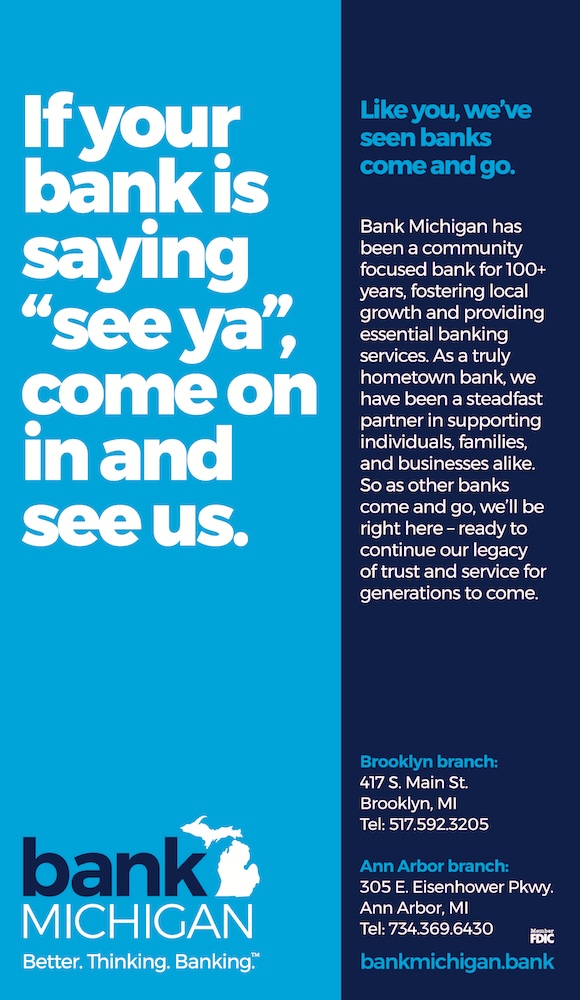Manchester Market property for sale; no immediate changes planned

The building and property of Manchester Market are for sale at a list price of $900,000 by the property owners, Wallace & Wallace. Store managers Jerry Dobbs and Jeff Tanner say the business will retain its status quo for the foreseeable future, under an agreement with the owners.
Last week, many local families reacted in alarm to the sight of a “FOR SALE” sign in front of the Manchester Market at 455 W. Main Street.
Jerry Dobbs, who has co-managed the Market since 1995 with his partner Jeff Tanner, acknowledged on Thursday that the building and property is for sale, at a list price of $900,000.
Dobbs and Tanner have leased the building, owned by the Wallace family, for the past 23 years. The owners have requested a long-term lease renewal to which the partnership can’t agree.
“We’ve actually been trying to plan an exit strategy,” Dobbs said with a chuckle. “But retail longevity is not what it used to be. Look at Toys R Us, Sears, JC Penney … it’s hard for those big companies to continue to compete in today’s market. Things are changing.”
Certainly, Manchester Market is in no position to overcome the issues that the failing big box stores face. But its importance to this community can’t be denied.
“I hear a lot of people talking about how expensive it is to shop there,” said Sandy Fountain of Manchester Township. “And when you compare prices to Meijer or whatever, it’s probably true. But even so, I stop at the Market at least three times per week. I might only pick up a couple of items, but that’s the beauty of it. I can stop on my way to or from picking kids up at school. If I had to drive to Chelsea or Ann Arbor to get those one or two things, it would be an extra hour of my time … and I’d end up spending a lot more–not only on gas, but I’d buy more things that I probably don’t need.
“I think people need to realize the value of having this store so convenient.”
Lisa Johnson, a village resident, says, “I love the Manchester Market! I shop there probably five times a week. I love the fresh meat options compared to other grocery stores. Honestly I go there before the Dollar General, even for things that I can get at the DG. I just feel better about it. I love supporting a local business when I can.”
As the mother of five kids at home, Lisa says she doesn’t do her full grocery shopping at the Market, but loves to be able to go there and get the items she needs on short notice. She adds, “I have always liked that if they didn’t have a product that you wanted, they would order it and carry it in stock next time you need it.”
Matt Pegouskie, of Five Healthy Towns Foundation (of which the Manchester Wellness Coalition serves as the local interface for), says, “A local grocery store has tremendous impact on the health and well-being of a community. Local grocers serve people of all ages and provide people with a consistent source of fresh fruits and vegetables year-round.”
Pegouskie adds that Wellness Coalitions in Chelsea, Dexter and Grass Lake have gone so far as to develop programs that encourage people to purchase – and eat – more fruits and vegetables; a task that would be difficult indeed without a local grocery store to provide those amenities.
There’s also a broad-based economic impact on the community that can be difficult to quantify, according to Manchester Village Manager Jeff Wallace (no relation to building owners).
“Having a grocery store gives people a reason to come to town,” he said. “People who come in to get their groceries will probably stop at other places–do their banking, shop at the stores, buy their insurance, or eating out. Even if they didn’t buy all their groceries there, it still brings them to town. You start taking away reasons for them to come, they’ll quit coming altogether. And that’s scary.”
In addition, Wallace said, the Market provides jobs–not only for high school kids, but other people living in local households. The building and the taxes it pays within the downtown development authority, helps to stretch out the retail sector of the village. Other intangible benefits of having the Market is the fact that they provide a place for local bottle drives for school and non-profit groups, Girl Scout cookie booths, Cub Scout popcorn sales, and much more. The donations they provide for organizations like Relay For Life, After-prom, and other school and community events are another often-unseen advantage.
“How can you put a dollar amount on that?” he asks.
The website, civileats.com, said in an article on Feb. 21, 2017, that the sociological impact of losing an anchor grocery store often goes beyond food access and measurable data. “Communities that lose grocery stores and green-markets (often) suffer a sizable loss,” said the article. “Data and studies may struggle to pinpoint the exact impacts of a supermarket or green-market loss (or gain) on a community beyond measurable aspects like employment rates, real estate value, and geographic food accessibility.”
For now, says Dobbs, he and Tanner have come to an agreement with the owners that the Market will continue operations as normal, without signing another long-term lease. If a buyer comes forward for the property, Dobbs & Tanner would have right of first refusal.
“The owners have also agreed to fix the roof,” he added.
So for the time being, things will run with the status quo. It would take a hefty investment for someone to purchase the building and surrounding property, although the realtor’s listing suggests many other usages for the property: “retail, service, office, medical office, sales showroom, services or social organizations, veterinary, funeral home, automotive service, recreational.” Touted as the “most permissive zoning in the Village of Manchester,” the listing also notes that this is currently operated as the “only full service grocery store in 20 miles.”
Dobbs said, “If someone came along who wanted to sign a lease to continue this as a grocery store, so we could retire, stay home, and collect Social Security, we’d welcome the chance to talk to them.”








You must be logged in to post a comment Login